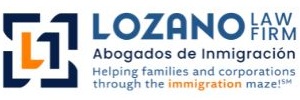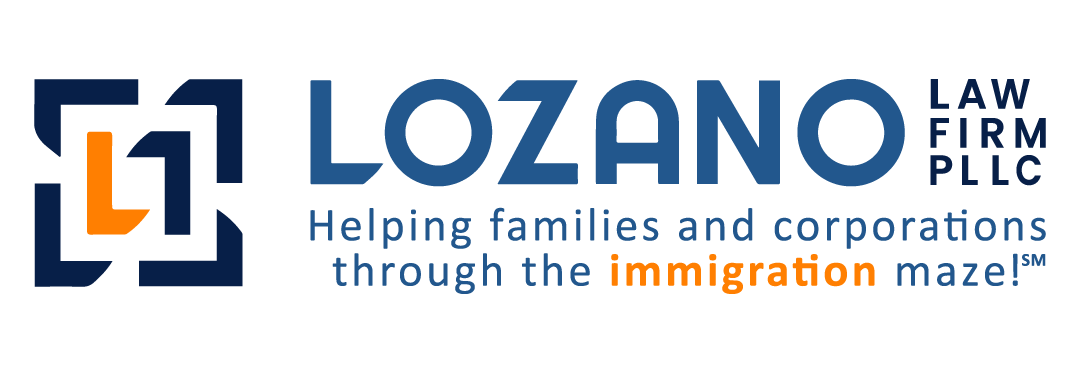TL;DR:
The E-1 visa supports international trade between the U.S. and treaty countries, but denials often result from documentation gaps, eligibility misunderstandings, or missteps during consular interviews. Common reasons include insufficient trade volume, lack of treaty nationality proof, or unclear business plans. Effective responses involve legal review, reapplication with additional evidence, or pursuing a waiver. If you’re facing E-1 visa denial, knowing the reasoning and acting quickly is key to preserving business continuity.
Imagine this: You’ve invested years into building a trade relationship with U.S. partners. You gather documents, attend your visa interview, and receive a denial. It’s frustrating, but not final.
The E-1 Treaty Trader visa is for those conducting substantial trade between the U.S. and their home country. Over the years, one truth remains: clarity and timely action can make all the difference.
We’ll walk through the most common reasons for E-1 visa denials and how to respond constructively.
What Is The E-1 Visa?
The E-1 visa is a nonimmigrant visa that allows individuals from treaty countries to engage in significant trade activities with the U.S. It is commonly used by entrepreneurs, executives, or employees of companies conducting international trade in goods, services, or technology.
To qualify, applicants must meet specific eligibility criteria and follow a multi-step application process through either a U.S. consulate or USCIS.
Eligibility Requirements
To apply for an E-1 visa, you must meet the following conditions:
- Be a national of a country that maintains a treaty of commerce and navigation with the United States.
- Conduct substantial trade, meaning a continuous flow of sizable international transactions.
- Ensure that more than 50% of the trade is between the U.S. and your treaty country.
- Be the principal trader or an employee in an executive, supervisory, or essential-skills capacity.
- Intend to depart the U.S. when the E-1 status ends (nonimmigrant intent).
- Maintain a non-marginal enterprise, capable of supporting more than just the individual and their family.
The Application Process
Applying for an E-1 visa involves the following key steps:
- Confirm treaty eligibility: Check that your country has a valid E-1 treaty with the U.S. (refer to the U.S. State Department’s list).
- Compile required documents, including:
- Proof of citizenship from the treaty country.
- Business ownership and registration records.
- Financial statements, contracts, and trade documentation.
- Executive or managerial job duties (if applying as an employee).
- Submit DS-160 and schedule a consular interview:
- You typically apply for E-1 visas at the U.S. consulate in your home country.
- Include a supplemental E visa application packet.
- Attend your visa interview, bringing all original documentation.
- Receive the visa approval and enter the U.S. to begin trade operations.
Each consulate may have specific procedural differences, so you must review their exact requirements and timelines in advance.
Common Reasons For E-1 Visa Denials
Many denials arise not from the concept of trade itself, but from the details of its execution and documentation. Below are some of the most frequent causes.
Insufficient Volume Of Trade
- The trade must be continuous and significant.
- A few irregular shipments or small-scale deals often won’t suffice.
- USCIS or consular officers expect to see robust, ongoing transactions.
Trade Not Principally With The U.S.
- At least 50% of the international trade must be between the U.S. and the treaty country.
- If you disperse your trade among several countries, you may not meet this requirement.
Unclear Or Incomplete Business Documentation
- Financial statements, invoices, contracts, and shipping records must support your claim.
- Missing or inconsistent data can quickly undermine your credibility.
Failure To Prove Treaty Nationality
- The business must be at least 50% owned by individuals holding citizenship of a treaty country.
- Documentation of ownership must be accurate and up-to-date.
Non-Qualifying Trade Activities
- The trade must involve goods, services, or technology.
- Activities like passive investment or sporadic consulting work typically do not qualify.
Inadequate Job Role Or Marginal Business
- You must show that your role is executive, supervisory, or essential.
- The business must generate more than enough income to support the trader and family or contribute significantly to the U.S. economy.
Interview Missteps
- Inconsistencies between your application and interview responses raise red flags.
- Officers look for clear, confident explanations of business operations and purpose.
Knowing the reasons behind E-1 visa denials helps you respond with focus and clarity.
Responding To An E-1 Visa Denial
Facing an E-1 visa denial can be challenging, especially when business plans are at stake. The key is to respond strategically by understanding the issue and taking timely, informed steps forward.
A denial isn’t the end of the road. Here’s how to move forward:
Step 1: Understand The Reason For Denial
- Carefully review the denial notice or Section 221(g) refusal letter.
- Determine whether the issue is factual (e.g., missing documents) or discretionary (e.g., lack of credibility).
Step 2: Identify What Can Be Strengthened
- Did your financial data demonstrate consistent and ongoing trade?
- Were ownership and control structures clearly documented?
- Did your job description align with E-1 requirements?
Step 3: Refile With Corrected & Enhanced Documentation
- Most E-1 applicants can reapply without a waiting period, unless barred.
- Add new contracts, invoices, or other proof of substantial trade.
- Include a detailed cover letter that clearly explains how you address the issues.
Step 4: Consider Filing A Waiver (If Eligible)
If inadmissibility (e.g., past immigration violations) was the basis for denial, a waiver such as Form I-601 might be appropriate. These are granted only in specific situations with strong evidence of hardship.
Once you understand how to respond to a denial, you must explore preventive measures. Let’s turn to proactive steps you can take to avoid E-1 visa denials altogether.
Legal Terms Definition
| Term | Definition |
| Substantial Trade | Continuous flow of sizable international trade items (goods/services). |
| Treaty National | A citizen of a country with which the U.S. maintains a commerce and navigation treaty. |
| 221(g) Refusal | A temporary visa refusal requires additional documentation or processing. |
| Marginal Business | A business that generates just enough income to support the trader/family, but not more. |
| Waiver | Legal forgiveness for certain visa ineligibilities (e.g., past violations). |
Tips To Prevent Denials In The First Place
Preventing an E-1 visa denial starts long before the interview. By preparing thoroughly, organizing documents, and anticipating potential issues, you greatly increase your chances of a smooth and successful outcome.
Even better than responding to a denial is avoiding it altogether. Here’s how:
- Prepare a Business Plan with projected trade volumes and economic impact.
- Organize Your Documents – consistent, labeled, and easy to verify.
- Know Your Numbers – be ready to explain trade figures and growth trends.
- Practice Your Interview – role-play tough questions to build confidence.
- Hire an Experienced Immigration Attorney – professional guidance often reduces mistakes that lead to denials.
Being proactive offers the best protection against denials. But even well-prepared applications face scrutiny. If complications arise, knowing your legal remedies, including waivers, can help preserve your goals and protect your future.
A Note On Timing & Consular Practice
U.S. embassies and consulates differ in processing styles and scrutiny levels. A denial at one post may not mean rejection elsewhere, but resubmitting without addressing the root issue rarely helps. You must convince each officer independently that you meet all E-1 visa elements.
Be aware: Denials are recorded in the Consular Consolidated Database (CCD), accessible to officers worldwide. So transparency and consistency are critical.
When A Waiver May Be The Right Step
If your denial was due to inadmissibility (criminal record, immigration fraud, unlawful presence), filing a waiver may be your best chance. One common waiver is the I-601 Waiver (Extreme Hardship).
- Requires showing that denial would cause “extreme hardship” to a U.S. citizen or permanent resident spouse/parent.
- Documentation includes medical reports, financial records, and psychological evaluations.
Filing for a waiver is complex, and the success hinges on presenting a compelling, human-centered case.
When Reapplying Makes Sense
Reapplying for an E-1 visa can be the right move, if you resolve the original issues. A strong reapplication begins with a careful evaluation of what has changed or improved.
You may reapply if:
- You can now show more substantial trade.
- You’ve corrected the legal ownership structure.
- You’ve clarified any inconsistencies in the initial petition or interview.
Before reapplying, you must evaluate whether the facts have changed meaningfully. Repeating the same mistake twice increases the risk of long-term visa ineligibility.
When To Consider Alternative Options
If reapplying for an E-1 visa is not viable or repeatedly denied, exploring alternative visa categories may open a new path. Different business goals may align better with other classifications.
If an E-1 path proves unworkable, consider alternatives:
- E-2 Visa (Treaty Investor): If your focus is on investment rather than trade volume.
- L-1 Visa: For executives or managers transferring within a multinational company.
- EB-5 Immigrant Investor Visa: A route to permanent residence through higher capital investment and job creation.
Always consult an immigration attorney to determine the appropriate path based on your specific facts and plans.
Protecting Your Long-Term U.S. Presence
Visa denials can disrupt business operations and personal plans, but they don’t have to end your journey. If you’ve received an E-1 visa denial, Lozano Law Firm in San Antonio, Texas, is here to help you.
Acting promptly, strategically, and fully understanding the law gives you the chance to succeed. Remember, even in the face of denial, your long-term goals remain within reach.
Whether that involves reapplying, pursuing a waiver, or considering alternate visa options, the right guidance can make all the difference.

 Thank you for contacting us. Please complete this form and one of our team members will be in touch with you soon.
Thank you for contacting us. Please complete this form and one of our team members will be in touch with you soon.
